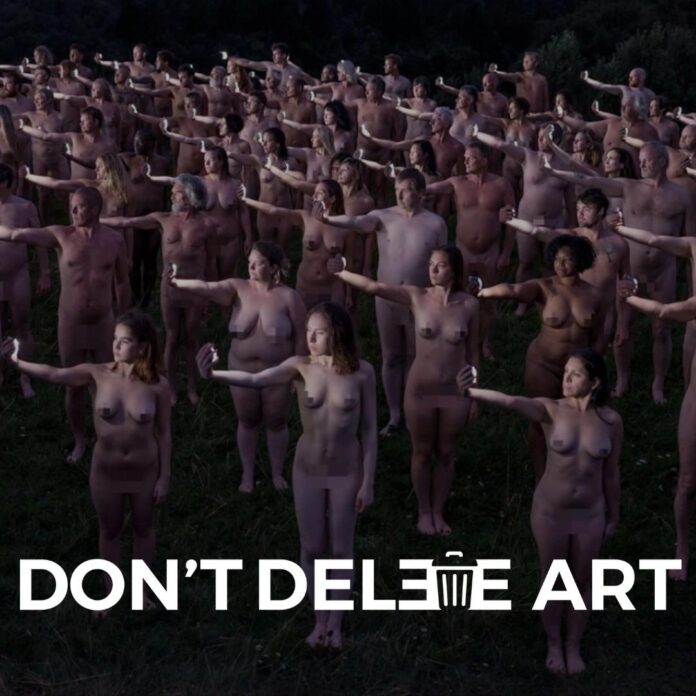The power of social media is baffling. Around 4.76 billion people use it—that’s 59% of the world’s population—for an average of two and a half hours a day. In terms of the art world, in 2020 social media replaced art fairs as the third most successful way for galleries to sell art, and it serves as a major source of income for many independent artists too. The interdependency of the art world and social media (particularly Instagram) is clear and considerable.
It goes without saying that this level of power, held by business conglomerates heavily focused on profits, can be dangerous. “Social media corporations have become cultural gatekeepers with unprecedented power to determine which artworks can freely circulate and which ones are banned or pushed into the digital margins,” says Don’t Delete Art (DDA), a project created in 2020 that documents art censorship on social media and aims to advance the protection of artistic expression across platforms. “It’s clear to us that in order to get social media companies to take artistic expression seriously, we need to put more pressure on them,” a statement adds.
Now the DDA project has launched a manifesto that artists, institutions, and all stakeholders are invited to sign. “The campaign will put pressure on major platforms like Facebook and Instagram to bring artists and other arts professionals into the content moderation process,” the DDA says. The manifesto’s main demands to social media companies are: the reconsideration of existing restrictions on artistic content; a review of alleged violations; and a better appeals and notifications process as specified by the Don’t Delete Art Campaign and the Santa Clara Principles. It adds: “Every platform should have established methods for incorporating artist perspectives into its content moderation policies, as well as special procedures for the review and appeal of art-related posts.”

The Don’t Delete Art manifesto announcement, over an image by the artist Tiffany Cole Courtesy of Don’t Delete Art and Tiffany Cole
Currently, regulatory laws and standards are changing in the US, Europe and the UK, and so now is an opportune time to campaign for change. “It will be critical for at-risk artists to be considered and valued as companies adapt,” the manifesto says. “The artists and audiences that are likely to be most severely affected [by new laws] are those living in oppressive regimes, those coming from marginal groups, and those who lack museum or gallery representation.” To that end, the DDA urges art institutions and their leaders to sign on, and fight for artists affected by art censorship on social media.
The DDA coalition includes the artists Savannah Spirit and Spencer Tunick; America’s National Coalition Against Censorship; PEN America’s Artists at Risk Connection; the NGO Freemuse; and art writer Emma Shapiro. DDA plans to hit the social media pavements hard with “a coordinated and highly visible online social media action” to encourage more people to join their mission.
The manifesto already had more than 800 signatories—you can find it at dontdelete.art

























